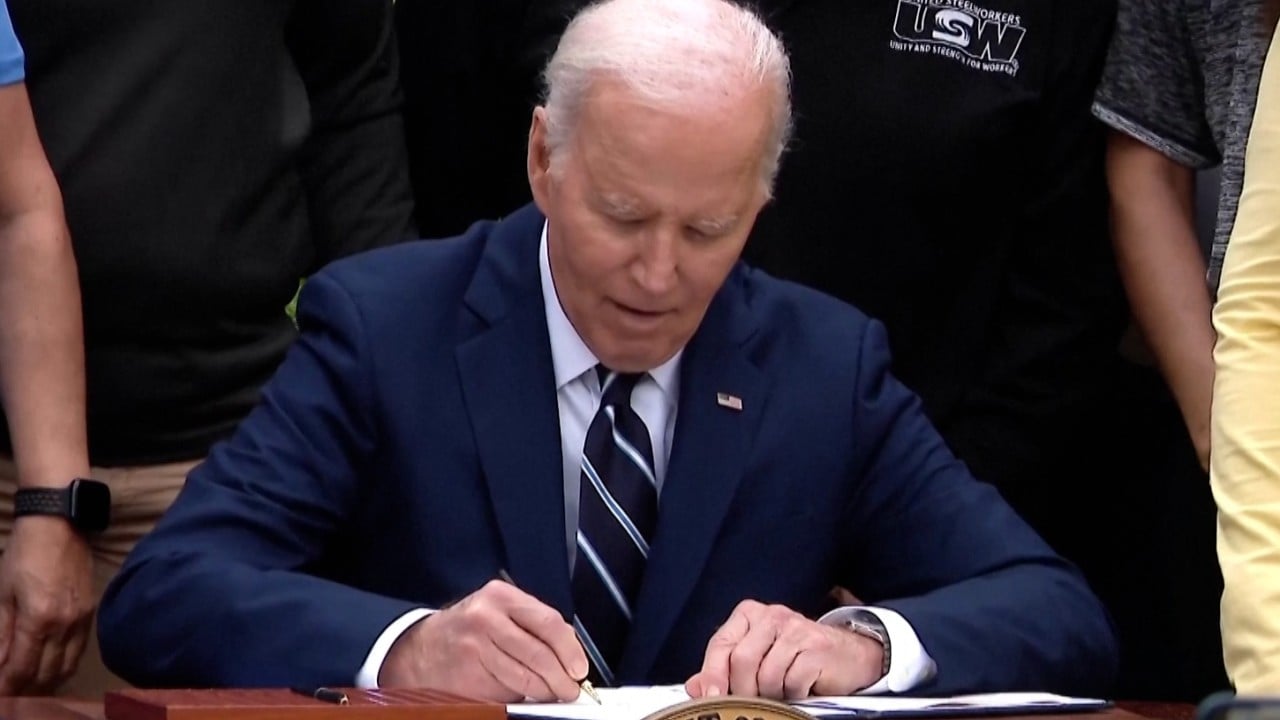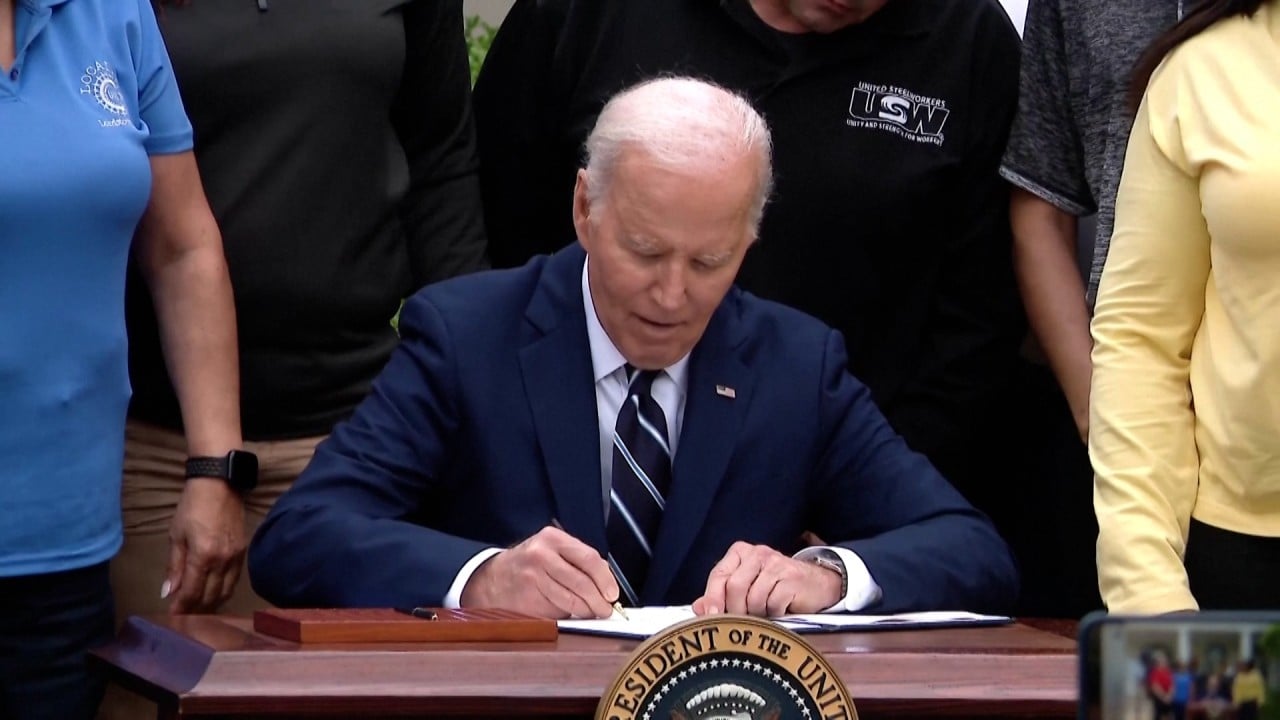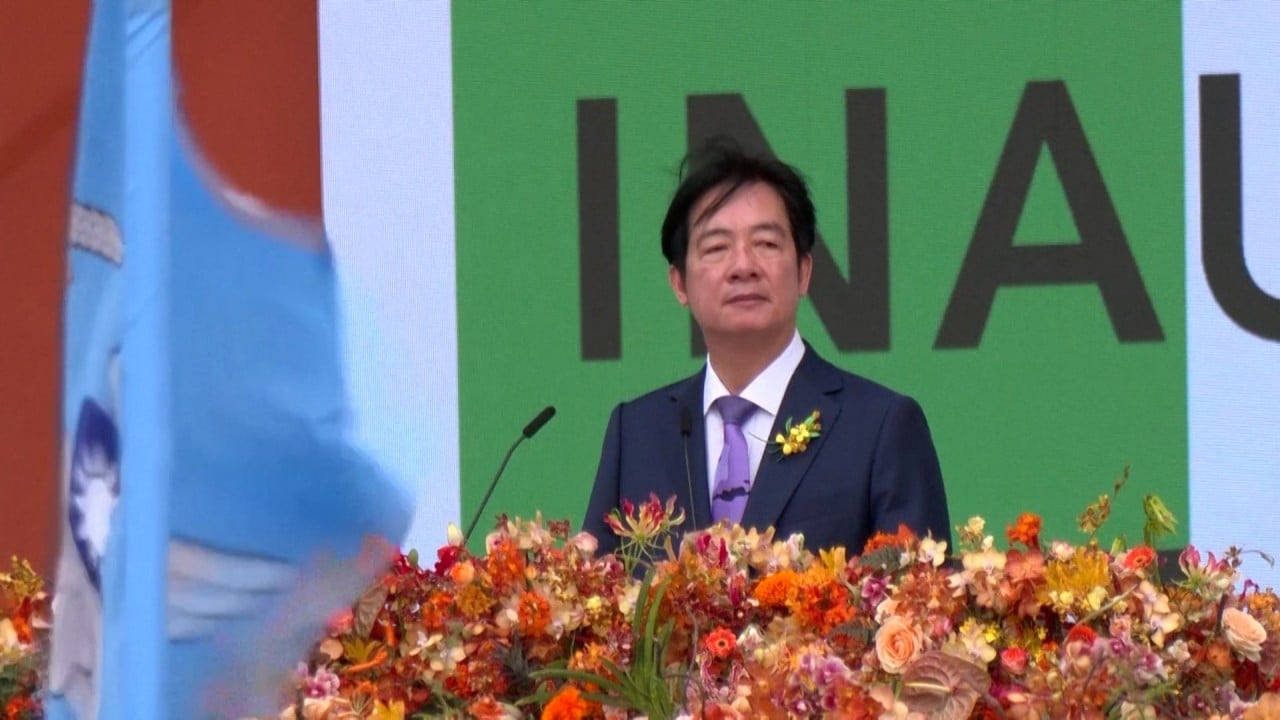Moves to stabilise China-US ties may have reached their “limit” since a summit eight months ago, a leading Chinese political scholar has warned.
Da Wei, director of the Centre for International Security and Strategy (CISS) at Tsinghua University, said both countries needed to make their intentions and goals more clear and convincing to each other.
This was crucial to preventing “fundamental distrust”, Da told an international security forum in Beijing on Sunday.
He also warned of “negative development” in bilateral ties, particularly on Taiwan, and technological and economic issues, noting that recent remarks from senior officials on either side had been marked by impatience, frustration, anxiety and disappointment.
“This tendency is not good,” the US-China relations specialist told a panel at the World Peace Forum, which was jointly hosted by Tsinghua and the Chinese People’s Institute of Foreign Affairs, a government-run policy group.
“Another crisis or some kind of confrontation” could not be ruled out if the present trajectory continued, he cautioned.
The summit between Chinese President Xi Jinping and his US counterpart Joe Biden in California last November was followed by several positive signs for the bilateral relationship after months of extreme tensions.
The two countries have resumed high-level dialogue, including military-to-military talks, launched several working groups, held negotiations on trade, finance, and climate and counternarcotics action, and also restarted cooperation on deporting illegal Chinese immigrants from the US.
But tensions continue to build on a number of fronts, most notably over US trade tariffs and moves to hobble China’s hi-tech access, its relationship with Russia and what the US and its allies see as Beijing’s growing regional assertiveness.
Uncertainty surrounding the outcome of the US presidential election in November has further added to worries about the future of the relationship.
In a phone call with US deputy secretary of state Kurt Campbell on June 27, Chinese executive vice-foreign minister Ma Zhaoxu urged Washington to respect Beijing’s concerns.
Washington should take concrete actions on its commitment to not support Taiwanese independence, stop interfering in China’s internal affairs relating to Tibet, halt support for Philippine “provocations” in the South China Sea and refrain from “smearing” what was “normal” Sino-Russian trade, Ma said.
Campbell said US commitment to the Philippines under their 1951 mutual defence treaty was “ironclad”, while reiterating concerns over China’s alleged support for Russia’s defence industrial base, an issue US Secretary of State Antony Blinken raised again earlier this month when he said China was helping to sustain Russia’s war in Ukraine.
Wu Xinbo, dean of the Institute of International Studies at Fudan University and on the same panel as Da, said that the China-US relationship still “lacked reciprocity” and was “uneven”.
“China has tried to accommodate US concerns on artificial intelligence dialogue, military-to-military relations, fentanyl, and so on. But on the US side, the Biden administration has been very reluctant to address China’s concerns,” he said.
“The Taiwan issue or sanctions or tariffs, [on] all these kinds of things, there has not been much progress.”
Others on the panel were Susan Thornton, former US acting assistant secretary of state for East Asian and Pacific Affairs; and Douglas Paal, former director of the American Institute in Taiwan, Washington’s de facto representative office.
Da said that the process of stabilising bilateral relations was “slowing down”, adding: “We have probably picked the low-hanging fruits already.”
China and the US had taken a bottoms-up approach to creating trust over the past eight months, which had been “effective”, Da noted.
“But there is a limit,” he said. “I think we are reaching that limit. Because if you have fundamental distrust [of] the other side, I think these negative sentiments will prevent us from having very meaningful cooperation or even coexistence.”
Both sides were still very suspicious of the other’s sincerity on stabilising relations and continued to view each other through a “very negative” lens, he added.
“We need to understand the basic motives and the purpose of the other side,” he said. “Following that, we need to clean up our house to remove the policies that are inconsistent with [our main goals].”
Da also called on the US to take some actions to convince Beijing that its goal was not containment of China.
For instance, he said, the White House should publicly state that new Taiwanese leader William Lai Ching-te’s words and actions did not align with Washington’s “one-China” policy.
Beijing sees Taiwan as part of China to be reunited by force if necessary. The US, like most countries, does not recognise Taiwan as an independent state, but is opposed to any attempt to take the self-governed island by force and committed to supplying it with weapons.
Da also called on the US and China to work together on Ukraine and the Middle East, as “we have some shared interest there, rather than veto each other at the United Nations. That’s meaningless.”
Referring to his conversations with Russian intellectuals about how the US and Russia had missed opportunities to build trust over the past two decades, Da said the same scenario should not play out for Beijing and Washington.
He also dismissed concerns that the wait for the US election results meant ties had entered what in American sporting parlance is called “garbage time” – when the proceedings become perfunctory.
“We need to be on the same page, understanding each other’s goal clearly and from the bottom of the heart, then we maybe can … have real stability in the next four years.”




